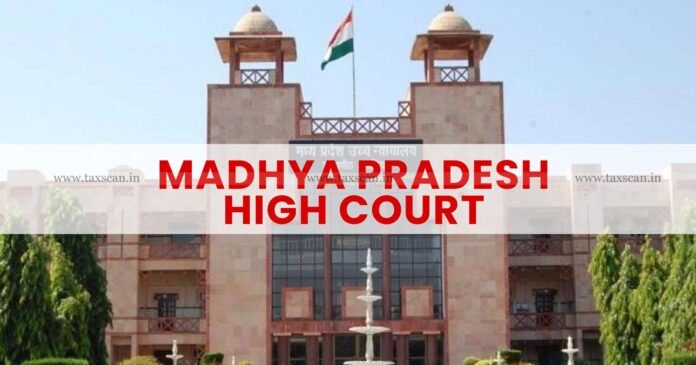The Madhya Pradesh High Court recently granted bail to Faizal Nisar, a young man accused of shouting anti-India slogans in a video that went viral. Nisar, who hails from Khandwa district, had been charged under serious sections of the Indian Penal Code (IPC), including sedition, for allegedly raising slogans like “Pakistan Zindabad” and “India Murdabad.” The court’s decision to grant bail has sparked a debate over the limits of free speech, the application of sedition laws, and the broader issue of communal harmony.
The Alleged Incident: A Viral Video and National Outrage
The case against Faizal Nisar dates back to early 2024, when a video surfaced on social media platforms showing a group of individuals purportedly raising pro-Pakistan and anti-India slogans during a local gathering. The footage quickly gained traction, drawing widespread condemnation from political leaders, activists, and the public alike. The video, which appeared to capture Nisar shouting “Pakistan Zindabad” and “India Murdabad,” led to his immediate arrest by local authorities in Khandwa under charges of sedition (Section 124A of the IPC) and promoting enmity between different groups (Section 153A).
Nisar’s defense team, however, has consistently maintained that the video was taken out of context, alleging that it had been heavily edited to misrepresent the facts. According to the defense, Nisar was part of a crowd and may have been caught on camera, but did not actively participate in raising the slogans. They argued that Nisar’s presence at the scene does not conclusively prove his intent or involvement in anti-national activities.
The Legal Battle: Sedition and Free Speech
The charges against Nisar were severe, with sedition being one of the most contentious and heavily debated sections of the Indian Penal Code. Section 124A, which deals with acts or words that incite hatred or disaffection against the state, has been a topic of intense scrutiny in India. Critics argue that the law is often misused to suppress dissent and punish individuals for expressions that may be provocative but not criminally seditious.
During the bail hearing, Nisar’s lawyer argued that his client’s alleged involvement did not amount to sedition and that there was no clear evidence showing Nisar as the principal offender who raised the slogans. The defense further contended that Nisar’s fundamental right to free speech under Article 19 of the Constitution had to be respected, and that mere participation in a gathering where such slogans were shouted should not be grounds for imprisonment.
The prosecution, on the other hand, maintained that shouting slogans like “Pakistan Zindabad” amounted to a direct attack on India’s sovereignty and unity, justifying the sedition charges. They claimed that Nisar’s actions were deliberate and carried the potential to disrupt communal harmony and public order in an already sensitive region. They pressed for Nisar’s continued detention, citing national security concerns.
The Court’s Ruling: Bail Granted
After hearing arguments from both sides, the Madhya Pradesh High Court decided to grant bail to Faizal Nisar. The court ruled that while the charges against him were serious, the prosecution had not yet provided sufficient evidence to establish that Nisar was the main instigator or that his actions posed an imminent threat to public safety or national security. The court emphasized that granting bail does not imply a final judgment on the merits of the case, and that the trial will continue as scheduled.
In its ruling, the court also stressed the importance of maintaining a balance between national security and individual rights, noting that the legal system must protect free speech while also preventing actions that could incite violence or disrupt social harmony. The court ordered Nisar to cooperate fully with the ongoing investigation and imposed strict conditions on his bail, including regular reporting to the police and a ban on any public gatherings or speeches that could further exacerbate tensions.
Reactions to the Bail Order
The High Court’s decision to grant bail to Nisar has sparked a range of reactions from different sections of society. Supporters of the ruling, including free speech advocates and legal scholars, argue that the case highlights the need for a more nuanced interpretation of sedition laws in India. They believe that the threshold for invoking sedition should be high, and that criminalizing expressions, even offensive ones, must be done carefully to avoid infringing on constitutional freedoms.
On the other hand, several political leaders and groups have criticized the bail order, arguing that individuals who promote anti-India sentiments must face swift and decisive punishment. In a region that has often been fraught with communal tensions, they fear that such incidents, if left unchecked, could further divide communities and erode public trust in the justice system.
The Road Ahead: A Test of Law and Society
Faizal Nisar’s release on bail is just the beginning of a longer legal process, with his trial still pending. The case underscores the delicate balance that the judiciary must strike between upholding national security and ensuring that individuals’ fundamental rights are protected. As the legal proceedings continue, the case will undoubtedly serve as a touchstone for debates on the use of sedition laws, the limits of free speech, and the challenges of maintaining communal harmony in a diverse and democratic nation like India.

